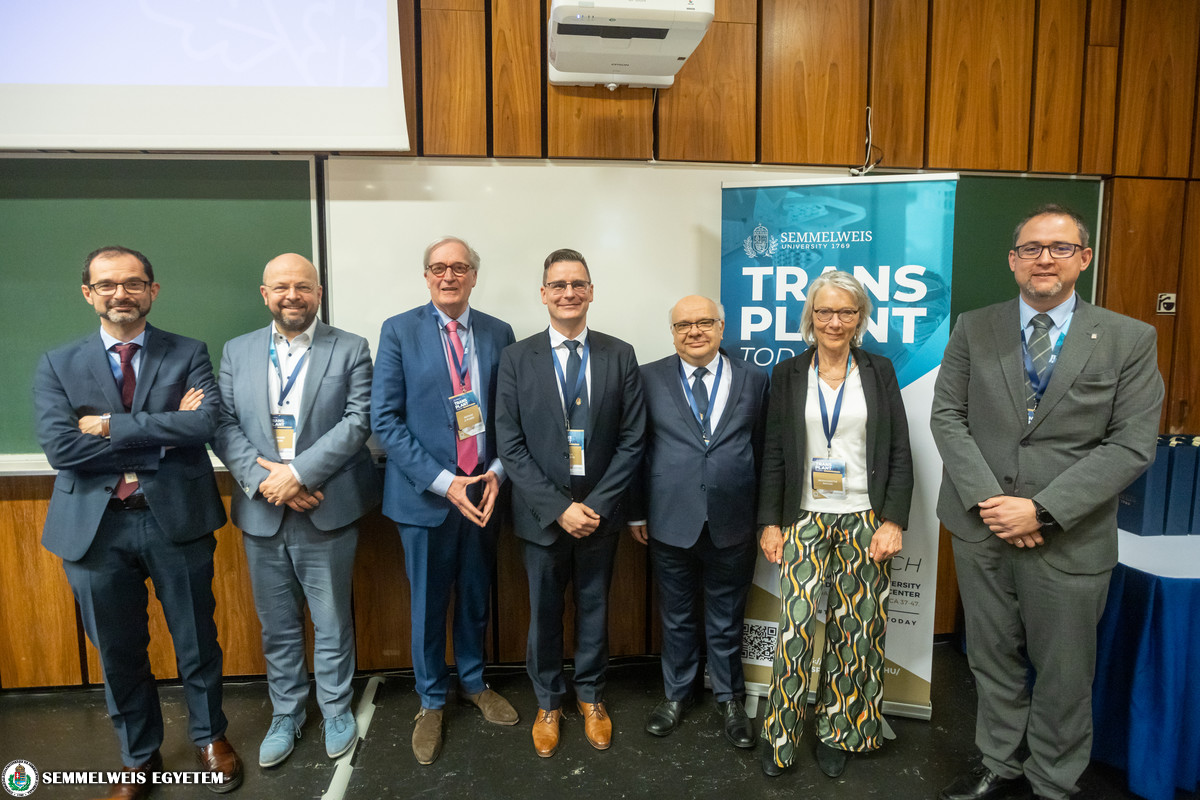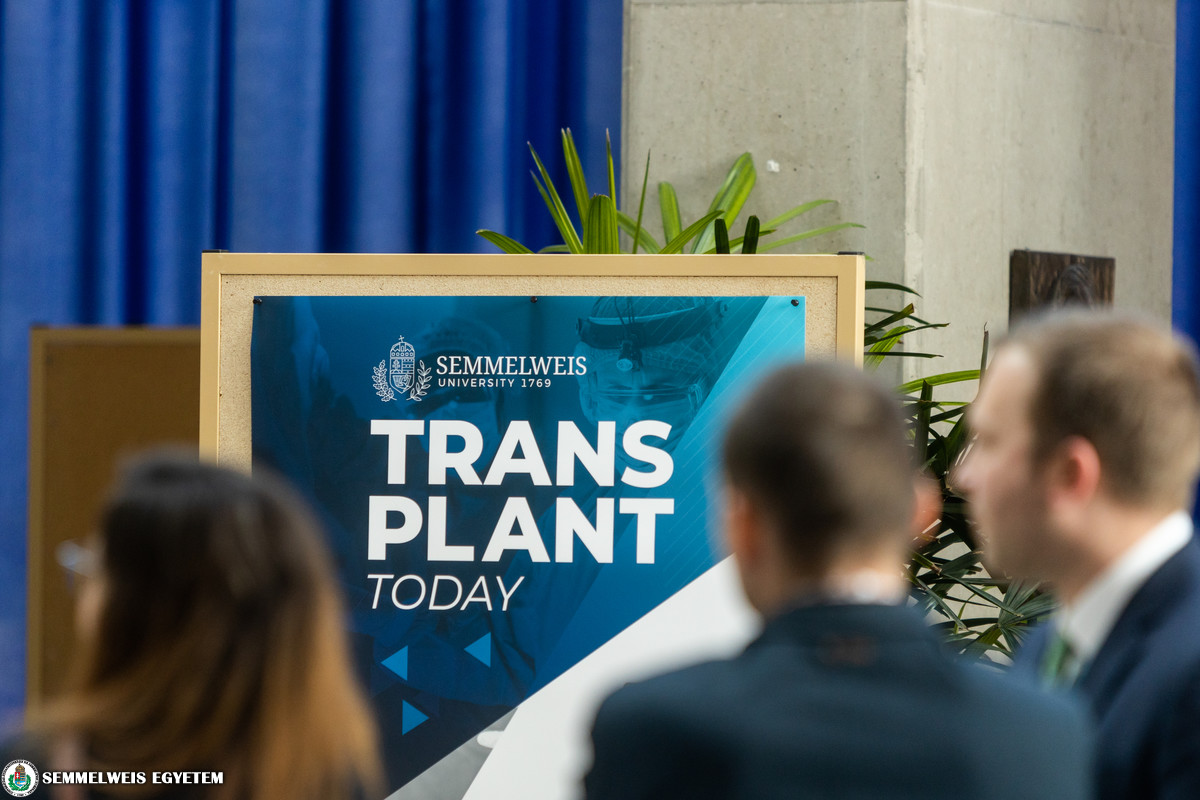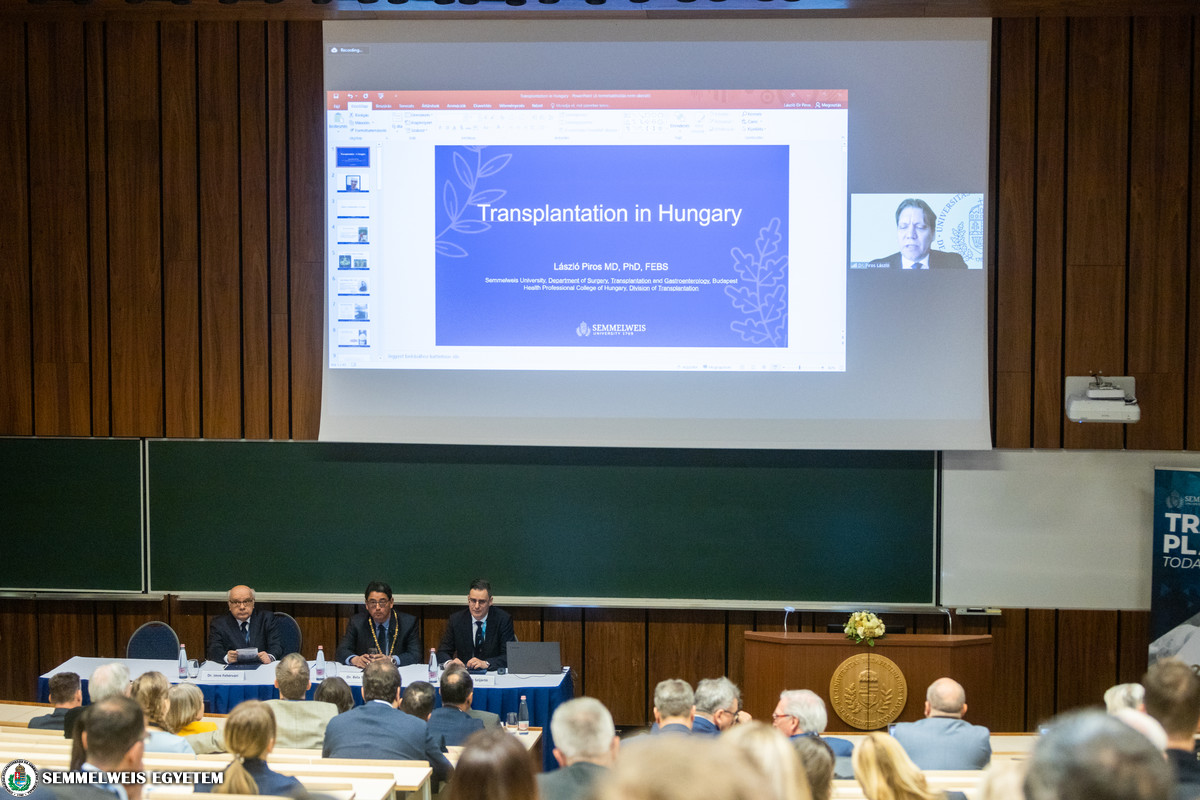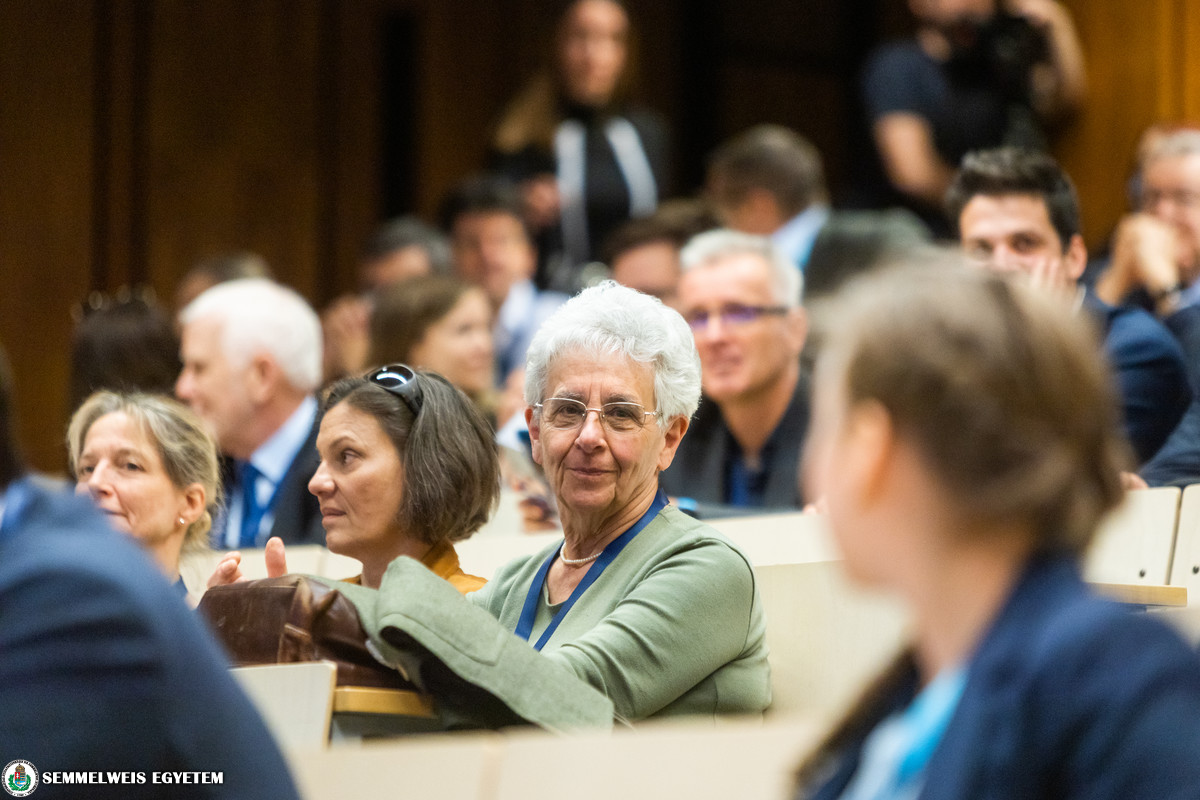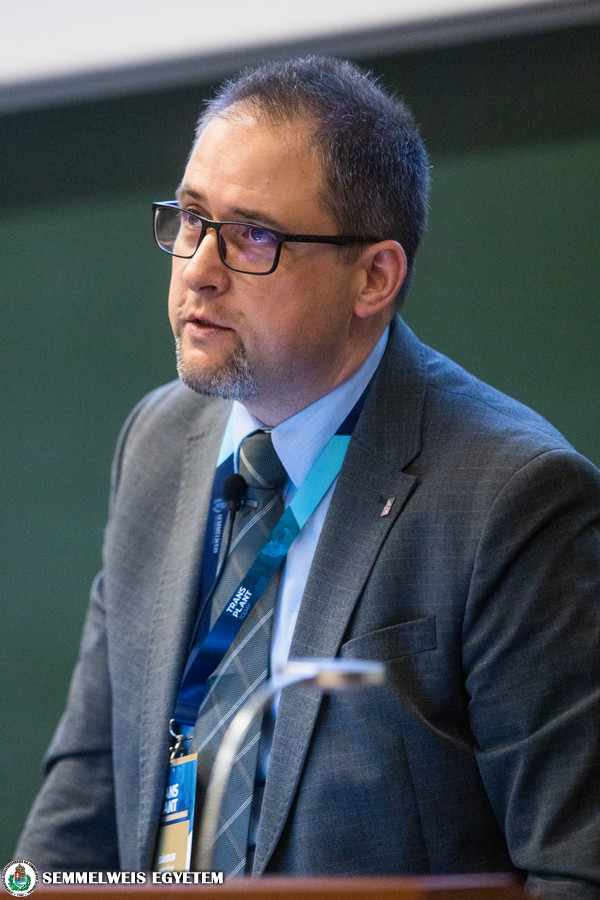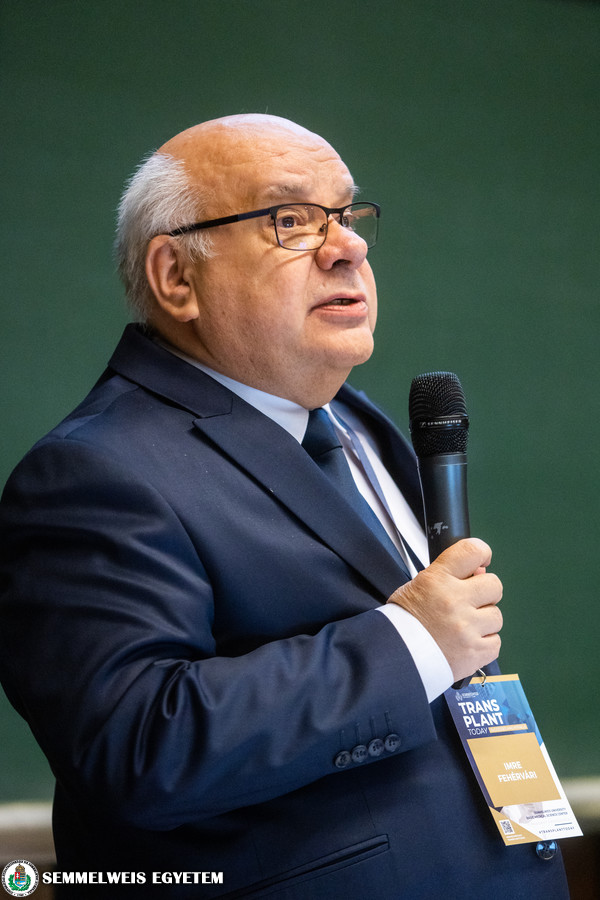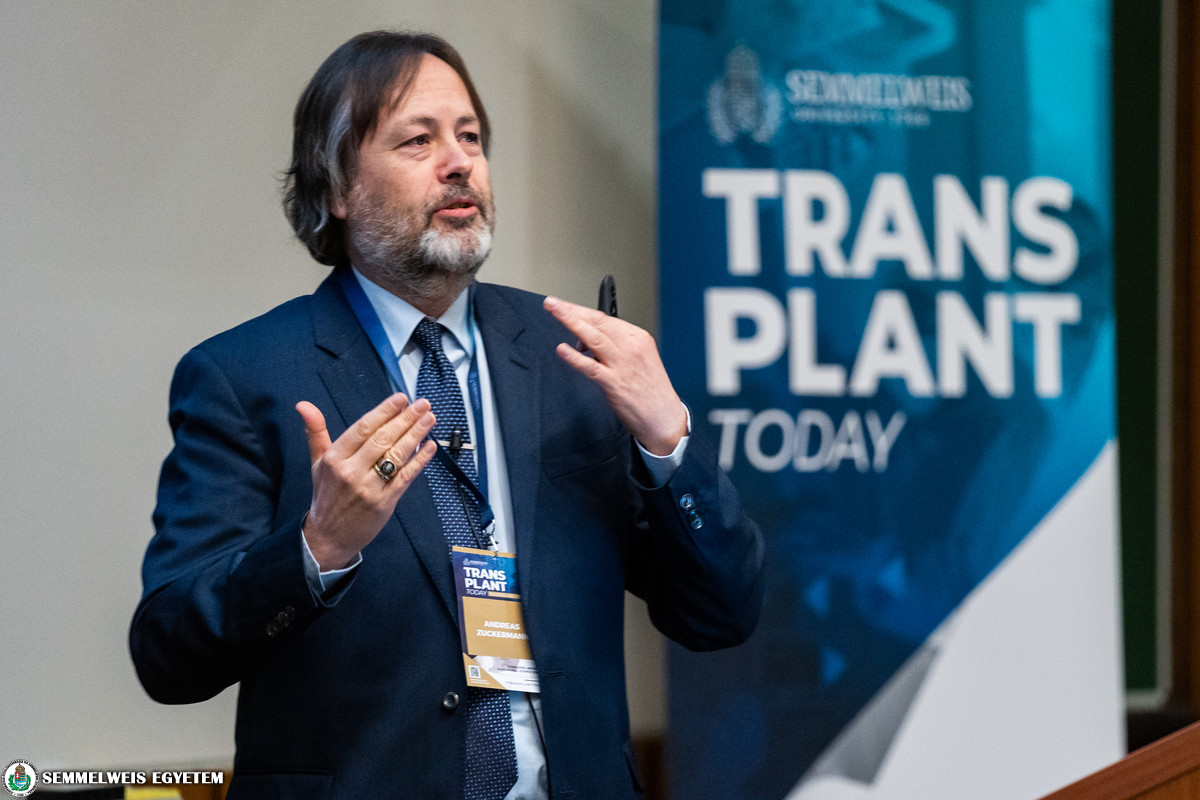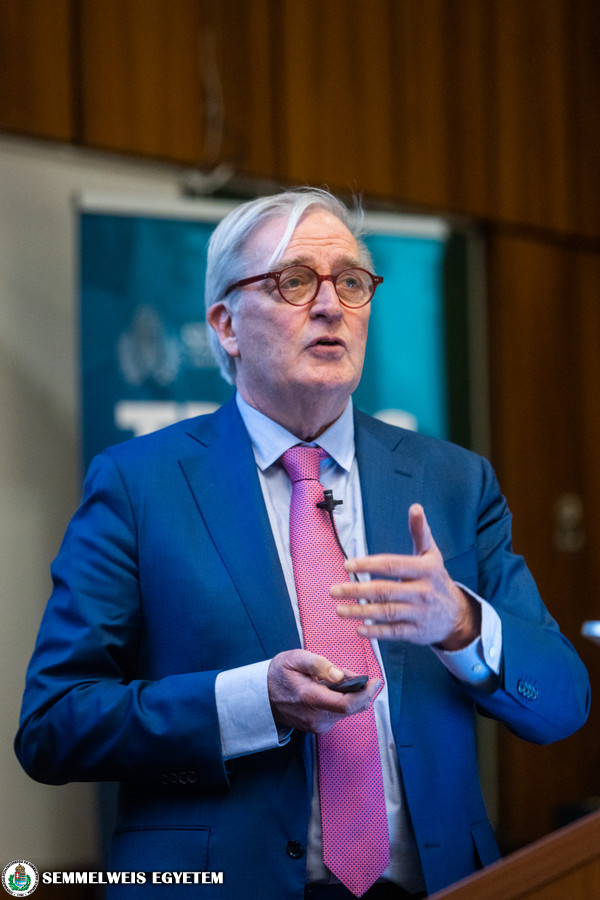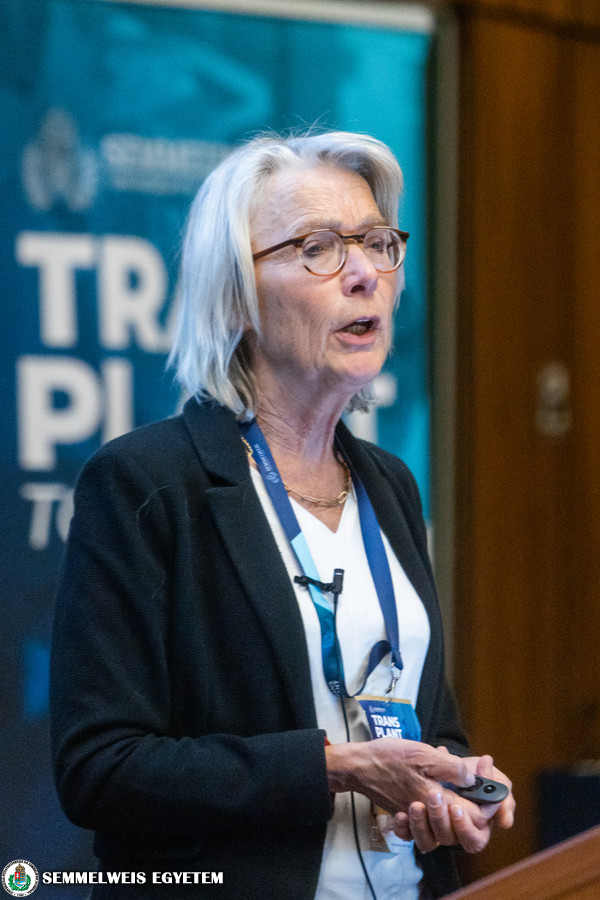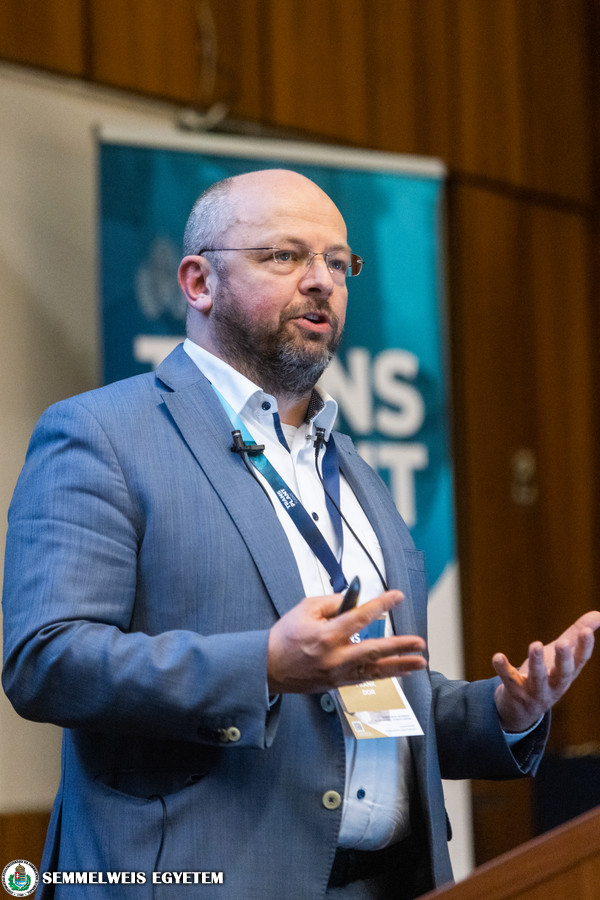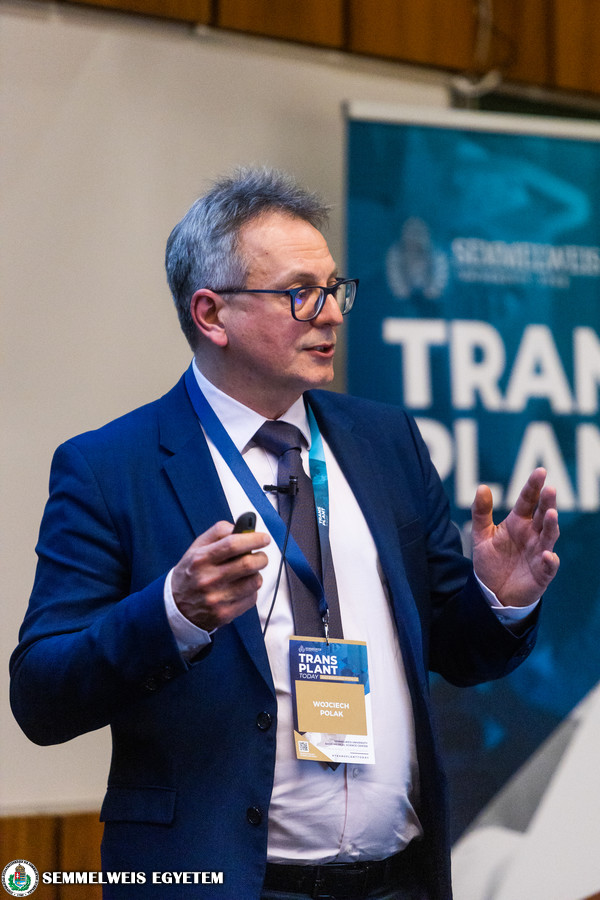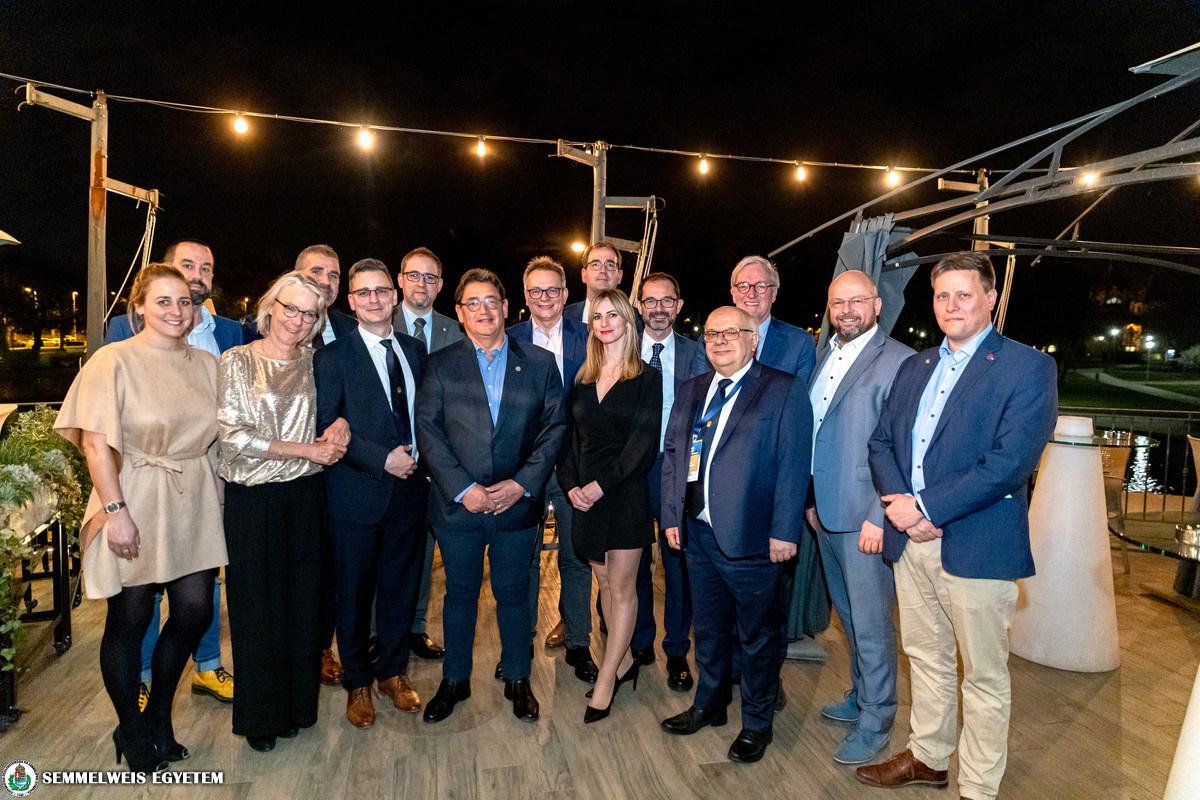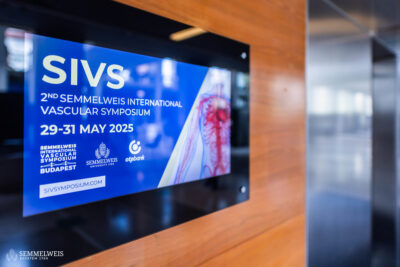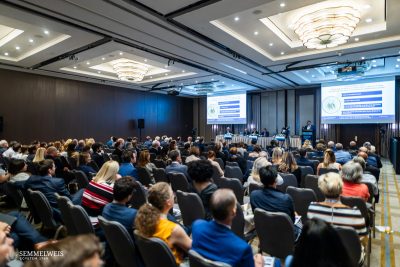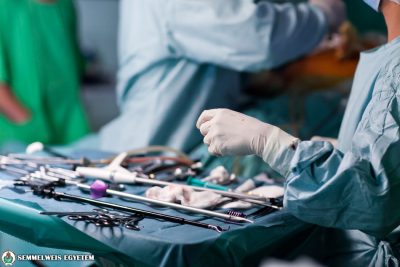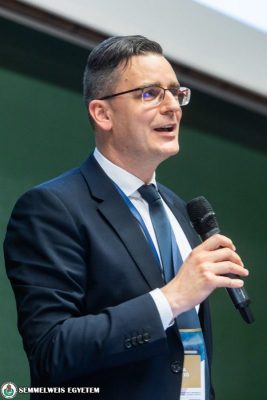 As part of the new university concept, the recently established Department of Surgery, Transplantation and Gastroenterology (STÉG) looks back on a 112-year history, and the roots of Hungarian transplantation can be traced back here, said Dr. Attila Szijártó, the director of the institute, and one of the main organizers of the program. He reminded that STÉG has become the largest comprehesnsive surgical and gastroenterological centre in Hungary, where more than 5,500 surgeries are performed each year, including an average of 140 kidney and 60-70 liver transplants. In addition, the current complexity of the institute allows for the full, unified care of patients within a single institution – emphasized Dr. Attila Szijártó in his welcome speech. Organ transplants are also performed at two additional institutes at Semmelweis University. The Heart and Vascular Centre in Városmajor has achieved outstanding results and enjoys an international recognition with its 30-year heart transplant program, and the Department of Thoracic Surgery, which operates at the National Institute of Oncology, boasts excellent results in lung transplants.
As part of the new university concept, the recently established Department of Surgery, Transplantation and Gastroenterology (STÉG) looks back on a 112-year history, and the roots of Hungarian transplantation can be traced back here, said Dr. Attila Szijártó, the director of the institute, and one of the main organizers of the program. He reminded that STÉG has become the largest comprehesnsive surgical and gastroenterological centre in Hungary, where more than 5,500 surgeries are performed each year, including an average of 140 kidney and 60-70 liver transplants. In addition, the current complexity of the institute allows for the full, unified care of patients within a single institution – emphasized Dr. Attila Szijártó in his welcome speech. Organ transplants are also performed at two additional institutes at Semmelweis University. The Heart and Vascular Centre in Városmajor has achieved outstanding results and enjoys an international recognition with its 30-year heart transplant program, and the Department of Thoracic Surgery, which operates at the National Institute of Oncology, boasts excellent results in lung transplants.
 Since the first successful Hungarian heart transplant in 1992, which is associated with the name of Dr. Zoltán Szabó, more than 640 heart transplants have been performed at the clinic in Városmajor, due to which the institute has become one of the leading heart transplant centres in Europe – highlighted Dr. Béla Merkely, Rector of Semmelweis University at the opening ceremony of the symposium. He added that out of the 307 organ transplants that were performed in Hungary last year, 70 percent took place at the transplant centres of Semmelweis University. One of the main objectives of Semmelweis University, as a leading institution in the field of organ transplants in international comparisons, is to make organ transplants available to as many patients in need as possible, ensuring a significantly better quality of life for them. Dr. Béla Merkely emphasized that the university not only strives to maintain its current excellent position in the field of organ transplants, but also makes serious efforts to implement further developments in it. The international training “Transplant Today” also wishes to contribute to this goal.
Since the first successful Hungarian heart transplant in 1992, which is associated with the name of Dr. Zoltán Szabó, more than 640 heart transplants have been performed at the clinic in Városmajor, due to which the institute has become one of the leading heart transplant centres in Europe – highlighted Dr. Béla Merkely, Rector of Semmelweis University at the opening ceremony of the symposium. He added that out of the 307 organ transplants that were performed in Hungary last year, 70 percent took place at the transplant centres of Semmelweis University. One of the main objectives of Semmelweis University, as a leading institution in the field of organ transplants in international comparisons, is to make organ transplants available to as many patients in need as possible, ensuring a significantly better quality of life for them. Dr. Béla Merkely emphasized that the university not only strives to maintain its current excellent position in the field of organ transplants, but also makes serious efforts to implement further developments in it. The international training “Transplant Today” also wishes to contribute to this goal.
The members of the organizing committee of the program, in addition to Dr. Attila Szijártó, were Dr. László Piros deputy director, on behalf of the Transplantation and Surgery Department of the clinic, and Dr. Imre Fehérvári associate professor whose report on the professional program can be read below.
The topic of the first presentation was an overview of the history of Hungarian transplantation, Dr. László Piros summarized the last 60 years. We have achievements to be proud of. The first kidney transplant in Hungary took place at the clinic of Szeged, in 1962. Since then, apart from minor ups and downs, the development has been unceasing. The first Hungarian kidney transplant ensuring long-term survival was performed at Semmelweis University, and based on our results today, we are rightly at the forefront of the world in the discipline.
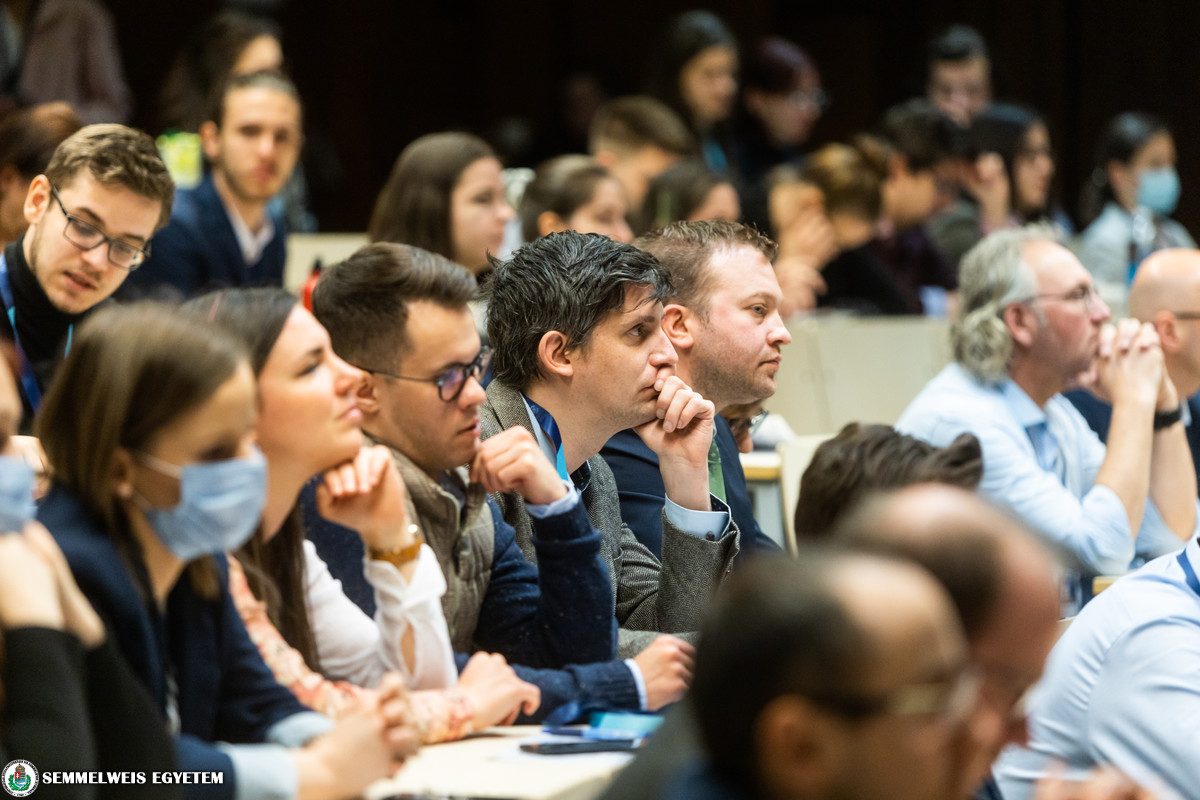 Hungary has been a member of Eurotransplant, the international service organization responsible for the allocation of donor organs for almost 10 years. The results of the integration were reported by Dr. Sándor Mihály, director of transplantation at Hungarian National Blood Transfusion Service (OVSZ). Not only the country but also individual patients are benefiting from the accession to the organization. In addition to better tissue matching, it has become possible to perform urgent life-saving organ transplants as we obtain the life-saving organs in a timely manner. The two Hungarian presentations were followed by the lectures of foreign professors, whose names fill the lecture halls all over the world. It was no different at our symposium.
Hungary has been a member of Eurotransplant, the international service organization responsible for the allocation of donor organs for almost 10 years. The results of the integration were reported by Dr. Sándor Mihály, director of transplantation at Hungarian National Blood Transfusion Service (OVSZ). Not only the country but also individual patients are benefiting from the accession to the organization. In addition to better tissue matching, it has become possible to perform urgent life-saving organ transplants as we obtain the life-saving organs in a timely manner. The two Hungarian presentations were followed by the lectures of foreign professors, whose names fill the lecture halls all over the world. It was no different at our symposium.
First, Dr. Rutger Ploeg, professor of transplantation at the University of Oxford, briefly referred to as the “Pope of organ preservation”, held his speech. Once again, he was worthy of his reputation: in his special presentation he introduced the possibilities available to us, including the machine perfusion procedures that are soon to be introduced in Hungary. Bernadette Haase, president of the Dutch Transplant Foundation, reviewed the benefits and problems of introducing machine perfusions from an economic perspective. Meanwhile, the audience started to ask more and more questions to the the speakers, developing a relaxed athmosphere and a dialogue, which is the basis of learning.
Our speakers from Vienna (AKH Wien) are familiar with the Hungarian transplant programs, being old acquaintances of ours. Both cardiac surgeon Dr. Andreas Zuckermann, and Dr. Walter Klepetko, the European founder of lung transplantation, honored our event with their presentations. The Hungarian heart and lung transplantation programs have been well-known by them for a long time, as they have been helping our daily work since the very beginning. Both lectures highlighted the need for machine organ preservation, as it not only makes the time of transplantation predictable, but also significantly improves the function of organs that may be considered unusable in the first examinations. This not only increases the safety of transplantation, but also raises the number of organs that can be used. By the time of the lunch break, a number of group discussions had shaped – personal contact with the speakers might facilitate the development of later collaborations, which can only be to our advantage.
The afternoon section commenced with the presentation of Dr. Wojciech Polak, Director of the Liver Transplant Program at the Erasmus University of Rotterdam. He reviewed the results of living donor liver transplants, also emphasizing the need for machine perfusion, which, as he reported, significantly increased the quality and quantity of transplantable livers. Dr. Vassilios Papalois, our speaker from London, a former dean of the Imperial College, was unable to attend the meeting in person due to his busy schedule, but sent his presentation on a pre-recorded video. This enabled us to learn the mysteries of pancreas transplantation first-hand, in detail. Our following presenter was Dr. Frank Dor, Head of the Imperial College Renal and Transplant Centre at Hammersmith Hospital, in London. Hammersmith Hospital is the largest kidney centre in Europe with 200–250 transplants a year. Here, any intervention that arises in the interest of the patient during a kidney transplant can be performed. Living donation and cross-donation are parts of the daily routine. Perhaps these are the areas where transplantation surgery can further develop in Hungary.
After reviewing the specific issues of the transplantation of various organs, a wider perspective was taken in the presentation of Dr. Luciano Potema, President of the European Society for Organ Transplantation (ESOT). In his talk about the future of transplantation medicine he outlined how the Society wants to coordinate the training of the next generation, and what quality criteria are set by ESOT.
After answering the questions of the audience, the event was closed by the final remarks of Dr. Attila Szijártó at 5.30 p.m. His words marked the end of the first ”Transplant Today” symposium taking place at the Szentgyörgy Hall of the Theoretical Medical Centre of Semmelweis University on March 25, 2022. At the same time, the exchange of views on the topic of the presentations, and possible collaborations continued at the gala dinner, which was also opened by Dr. Béla Merkely and Dr. Attila Szijártó.
Veronika Szelid,
Dr. Imre Fehérvári (Department of Surgery, Transplantation and Gastroenterology)
Photo: Bálint Barta, Attila Kovács – Semmelweis University
Video: Tamara Bartincki, Dávid Réthly
